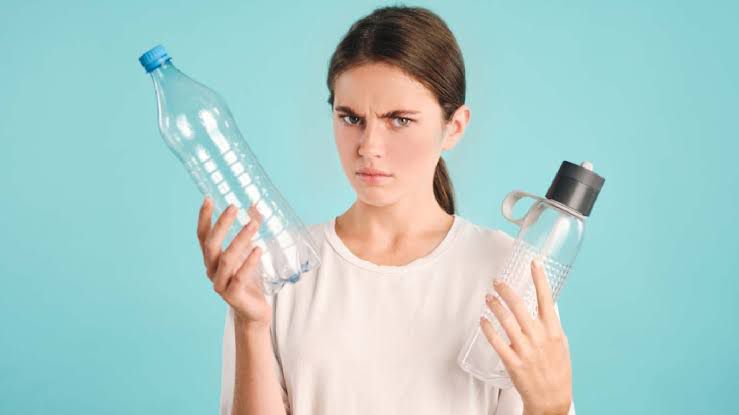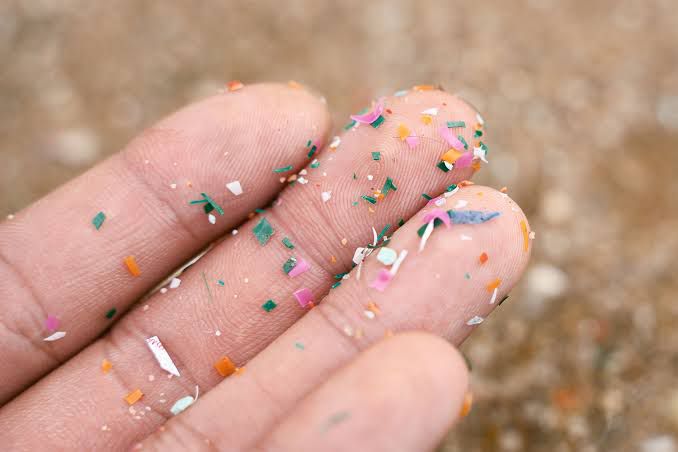In recent years, the dangers of plastic pollution have become increasingly clear. Not only does plastic waste damage our environment, but research is beginning to show that it could also pose serious risks to our health. One of the most recent and concerning findings is that drinking water from plastic bottles may contribute to higher blood pressure due to the presence of microplastics in the water.

The Problem with Microplastics
Microplastics are tiny particles of plastic that have found their way into nearly every part of our environment, including the food we eat and the water we drink. These particles are typically less than 5 millimeters in size, making them difficult to detect and even harder to avoid. Despite their small size, microplastics can have significant effects on our health.
A study published in the journal *Microplastics* by researchers from the Department of Medicine at Danube Private University in Austria has shed new light on the potential dangers of these tiny particles. The study revealed that microplastics in plastic bottled water could be linked to elevated blood pressure, a serious health concern that affects millions of people worldwide.

The Study: Linking Plastic Bottles to Blood Pressure
The Austrian researchers conducted a study to explore the effects of microplastics on human health, particularly focusing on blood pressure. Participants in the study consumed water that had not been stored in plastic bottles, and the results were striking. The researchers observed a significant decrease in blood pressure among the participants, suggesting that the absence of microplastics in the water played a crucial role in this improvement.
The study’s findings are groundbreaking because they offer the first evidence that reducing plastic use—specifically avoiding beverages packaged in plastic bottles—could help lower blood pressure. This is a critical insight given the widespread reliance on plastic bottled water around the world.
How Microplastics Affect Health
Microplastics are pervasive in the environment and have been found in the bloodstreams of humans. Once these particles enter the body, they can cause a range of health issues. Previous studies have linked microplastics to various health problems, including hormonal imbalances, cardiovascular disease, and even cancer. Now, with this new research, elevated blood pressure can be added to the list of potential risks.
The exact mechanisms by which microplastics contribute to high blood pressure are not yet fully understood. However, scientists speculate that the presence of these particles in the bloodstream may trigger inflammation or other physiological responses that lead to an increase in blood pressure.
The Importance of Reducing Plastic Use
Given the potential health risks associated with microplastics, it is crucial to reduce our exposure to these particles. One of the most effective ways to do this is by limiting the use of plastic products, particularly plastic bottles used for storing drinking water. By choosing alternatives like glass or stainless steel bottles, we can significantly decrease the amount of microplastics that enter our bodies.
Additionally, it’s important to consider other sources of microplastics in our environment. Microplastics can be found in a wide range of products, from cosmetics to clothing, and they can enter our bodies through ingestion, inhalation, or even through the skin. Reducing plastic use in all aspects of our lives can help mitigate these risks.
Alternative Solutions to Minimize Microplastic Exposure
If completely avoiding plastic bottles isn’t an option, there are still steps you can take to minimize your exposure to microplastics:
1. Boil and Filter Your Water: Boiling and filtering tap water can reduce the presence of microplastics by nearly 90%. Investing in a high-quality water filter that is capable of removing microplastics is a smart choice for those concerned about their health.
2. Avoid Single-Use Plastics: Single-use plastics, such as plastic bags, straws, and cutlery, contribute significantly to microplastic pollution. Opt for reusable alternatives made from materials like metal, glass, or bamboo.
3. Choose Products with Natural Ingredients: Many cosmetics and personal care products contain microplastics in the form of microbeads. Look for products that use natural exfoliants and ingredients instead.
4. Support Policies That Reduce Plastic Pollution: Advocate for and support policies that aim to reduce plastic waste and pollution. These can include bans on single-use plastics, increased recycling efforts, and investment in research for biodegradable alternatives.
Ceeke’s Commitment to Health and the Environment
At Ceeke, we are committed to providing high-quality, safe drinking water while also caring for the environment. Our bottled water is designed to meet the highest standards of purity, and we are continually exploring ways to reduce our environmental impact. This includes looking into alternative packaging solutions that are both safe for consumers and better for the planet.
We understand the growing concerns surrounding microplastics and their potential health risks. That’s why we are dedicated to ongoing research and development to ensure that our products not only meet but exceed safety standards. As we continue to innovate, we encourage our customers to stay informed about the latest research and make choices that prioritize both their health and the health of our planet.
Conclusion: Making Healthier Choices for a Better Future
The link between microplastics and elevated blood pressure is a sobering reminder of the hidden dangers lurking in everyday products. While further research is needed to fully understand the extent of these risks, the findings from the recent study are clear: reducing plastic use, particularly when it comes to drinking water, could have significant health benefits.
By choosing alternatives to plastic bottles, being mindful of microplastic exposure, and supporting sustainable practices, we can protect our health and contribute to a cleaner, healthier planet. Ceeke is proud to be part of this movement towards safer, more sustainable choices, and we are committed to leading the way in providing safe drinking water that you can trust.
Remember, small changes in our daily habits can lead to big improvements in our health and well-being. Let’s work together to make healthier choices for ourselves and future generations
